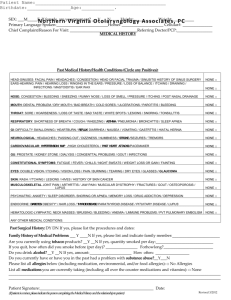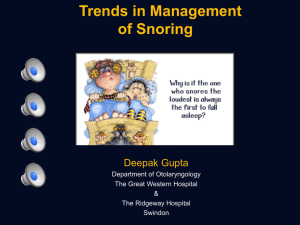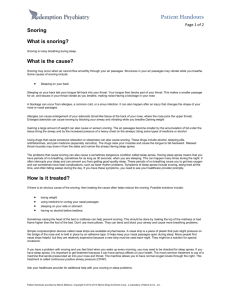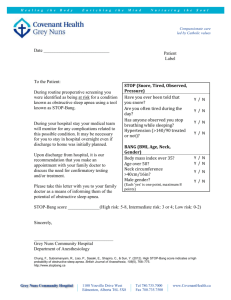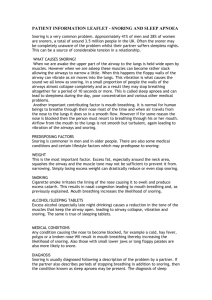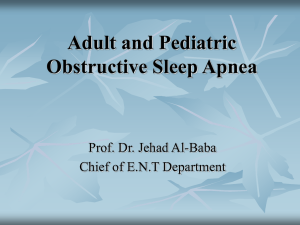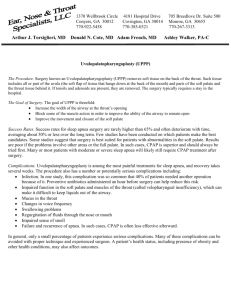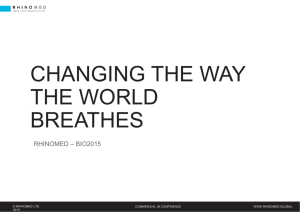1370 Wellbrook Circle 4181 Hospital Drive 705 Breedlove Dr
advertisement
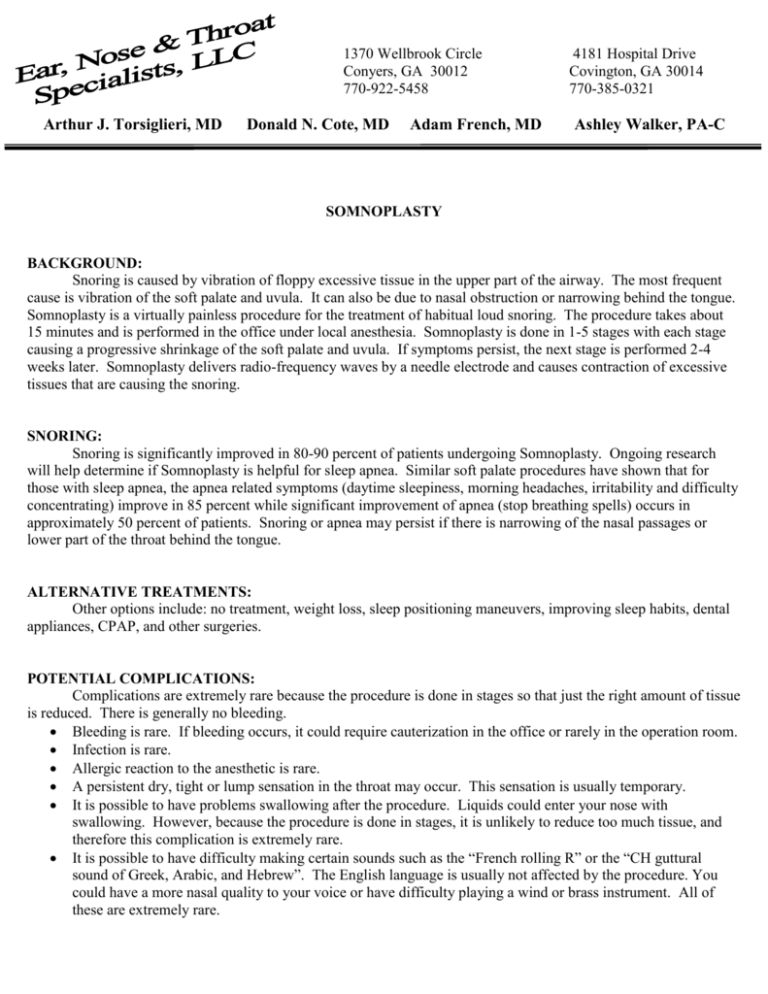
1370 Wellbrook Circle Conyers, GA 30012 770-922-5458 Arthur J. Torsiglieri, MD Donald N. Cote, MD Adam French, MD 4181 Hospital Drive Covington, GA 30014 770-385-0321 Ashley Walker, PA-C SOMNOPLASTY BACKGROUND: Snoring is caused by vibration of floppy excessive tissue in the upper part of the airway. The most frequent cause is vibration of the soft palate and uvula. It can also be due to nasal obstruction or narrowing behind the tongue. Somnoplasty is a virtually painless procedure for the treatment of habitual loud snoring. The procedure takes about 15 minutes and is performed in the office under local anesthesia. Somnoplasty is done in 1-5 stages with each stage causing a progressive shrinkage of the soft palate and uvula. If symptoms persist, the next stage is performed 2-4 weeks later. Somnoplasty delivers radio-frequency waves by a needle electrode and causes contraction of excessive tissues that are causing the snoring. SNORING: Snoring is significantly improved in 80-90 percent of patients undergoing Somnoplasty. Ongoing research will help determine if Somnoplasty is helpful for sleep apnea. Similar soft palate procedures have shown that for those with sleep apnea, the apnea related symptoms (daytime sleepiness, morning headaches, irritability and difficulty concentrating) improve in 85 percent while significant improvement of apnea (stop breathing spells) occurs in approximately 50 percent of patients. Snoring or apnea may persist if there is narrowing of the nasal passages or lower part of the throat behind the tongue. ALTERNATIVE TREATMENTS: Other options include: no treatment, weight loss, sleep positioning maneuvers, improving sleep habits, dental appliances, CPAP, and other surgeries. POTENTIAL COMPLICATIONS: Complications are extremely rare because the procedure is done in stages so that just the right amount of tissue is reduced. There is generally no bleeding. Bleeding is rare. If bleeding occurs, it could require cauterization in the office or rarely in the operation room. Infection is rare. Allergic reaction to the anesthetic is rare. A persistent dry, tight or lump sensation in the throat may occur. This sensation is usually temporary. It is possible to have problems swallowing after the procedure. Liquids could enter your nose with swallowing. However, because the procedure is done in stages, it is unlikely to reduce too much tissue, and therefore this complication is extremely rare. It is possible to have difficulty making certain sounds such as the “French rolling R” or the “CH guttural sound of Greek, Arabic, and Hebrew”. The English language is usually not affected by the procedure. You could have a more nasal quality to your voice or have difficulty playing a wind or brass instrument. All of these are extremely rare.
